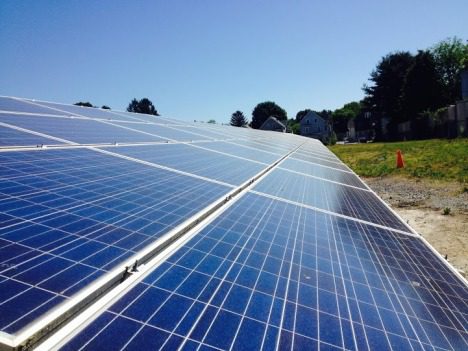
Utilities leverage CLEAN Programs as part of a plan to bring nearly one gigawatt of new solar capacity online
The programs send a clear signal that local renewable generation is a smart economic investment for utilities across the country.
Utilities in Georgia, New York, and Colorado recently announced plans to bring a total of 840 megawatts (MW) of solar energy online by 2016, clearly signaling that local renewable generation is a smart economic investment for utilities across the country.
OnJuly 11, the Georgia Public Service Commission (PSC) approved a motion to expand Georgia Power’s Advanced Solar Initiative (ASI) from 210 MW to 735 MW. As part of the ASI, Georgia Power – an investor-owned utility serving more than two million customers – will bring at least 190 MW of distributed solar online through a CLEAN Program. Notably, the decision by Georgia’s all-Republican PSC shows renewables are increasingly attractive to fiscal conservatives looking to keep energy rates affordable and hedge against significant risks associated with natural gas and other fossil fuels.
“Commissioner McDonald’s motion adding 525 MW of solar to our 20-year energy plan is a hedge against more coal regulation and natural gas price volatility,” explained PSC commissioner Tim Echols.
Georgia Power is not alone in pursuing greater distributed solar energy through a CLEAN Program. OnJuly 12, Long Island Power Authority (LIPA) announced plans to expand its CLEAN Solar Initiative (CSI) from 50 MW to 150 MW, which will bring enough solar energy online to power roughly 13,000 homes. The CSI expansion includes a premium of 7 cents per kilowatt-hour for solar projects sited at critical points on LIPA’s grid, which will enable the utility to defer expensive transmission investments.
LIPA’s detailed assessment that distributed generation can provide at least 7 cents per kilowatt-hour of incremental value by avoiding additional costs associated with transmission-dependent generation is an important lesson for the rest of the country. The locational value of wholesale distributed generation is substantial and the compensation of such will ensure that energy generation is deployed where it is needed most in a timely fashion.
Fort Collins Utility – the municipal utility in Fort Collins, Colorado – has also unveiled its CLEAN Program, known as the Solar Power Purchase Program. This pilot program will bring 5 MW of distributed solar online by 2015 and serve as a model to expand local renewable generation throughout Colorado and beyond.

